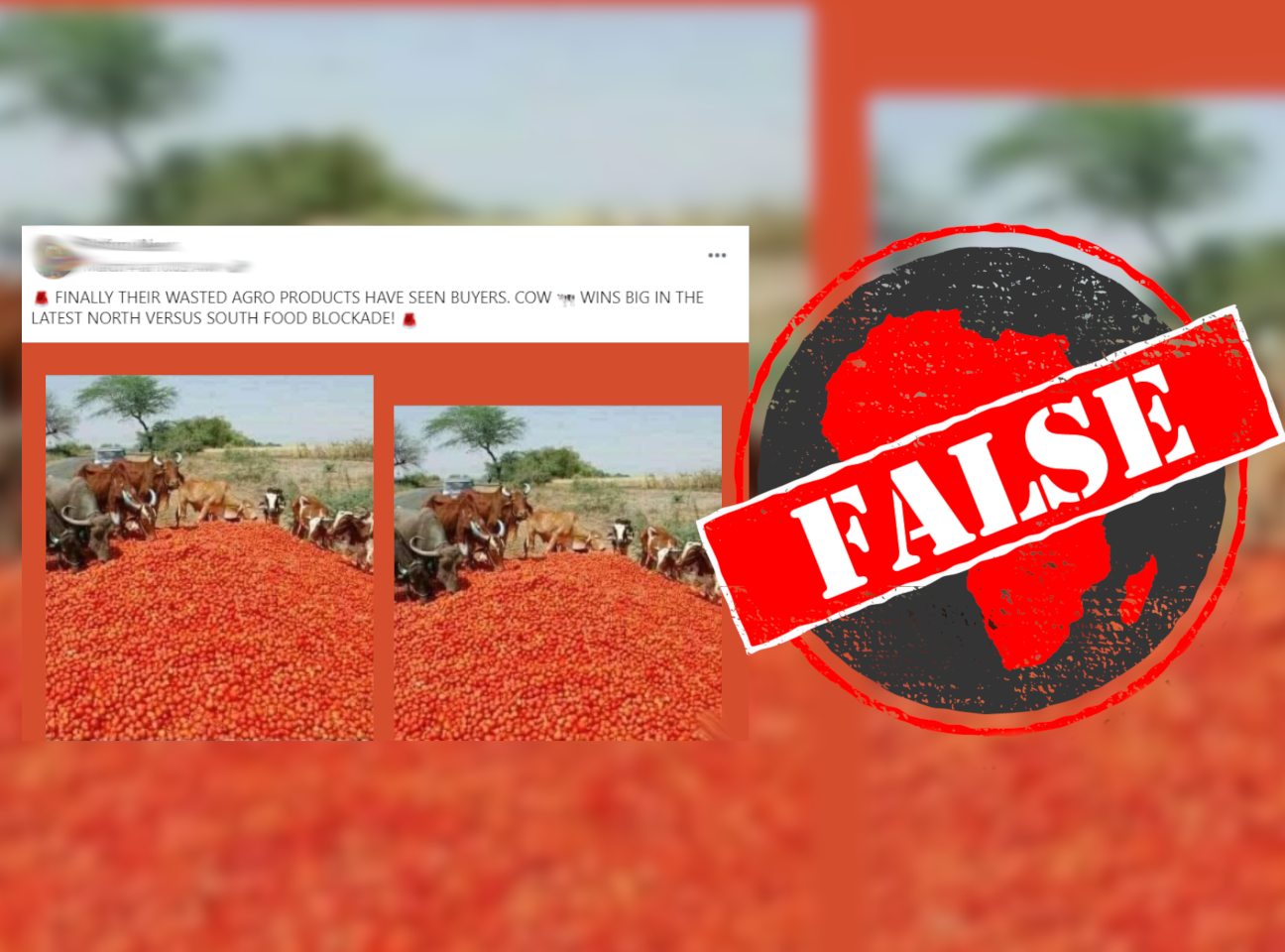On 25 February 2021, members of the Amalgamated Union of Foodstuff and Cattle Dealers from northern Nigeria announced a strike in which they would stop supplying food to the south of the country.
The union was reportedly demanding that the federal government pay N475 billion compensation for the death of its members during the #EndSARS protests across Nigeria in late 2020 and the deadly violence at Shasa market in Ibadan, Oyo state, on 12 February 2021.
On 3 March the union called off the strike, lifting the food embargo.
But the next day the “Biafuru News” Facebook page posted a photo – duplicated four times – of long-horned cattle eating from a huge pile of tomatoes.
“Finally their wasted agro products have seen buyers,” the caption reads. “Cow wins big in the latest north versus south food blockade!”
Tomatoes are usually supplied by northern farmers, according to the Nigeria-based International Centre for Investigative Reporting, and “became scarce and very expensive in the south during the blockade”.
The photo was posted elsewhere with the same claim – that it showed tomatoes wasted during the food blockade, being eaten by cattle.
But what does it really show? We checked.

Loss-making tomatoes dumped – but at least cattle would benefit
The photo has been online for at least eight years – and was taken in India.
A Google reverse image search traced it to a 2013 report on the Hindi-language blog Bhopal Samachar.
“Farmers of Barwani threw tomato crop on the roads,” a machine translation of the headline reads.
Barwani is a town in the southwest of India’s Madhya Pradesh state. According to Britannica, it is a centre for trade in agricultural produce and timber.
“A campaign to make agriculture a profitable business is going on in Madhya Pradesh, but tomato farming is proving to be the biggest loss-making business to the farmers of Barwani,” the translated report reads.
“The situation is that farmers are not even getting the cost price of tomatoes. They eventually threw tomatoes on the streets.”
The report ends by saying that the farmers hoped that by dumping the tomatoes, at least cattle would benefit from the crop.
Republish our content for free
For publishers: what to do if your post is rated false
A fact-checker has rated your Facebook or Instagram post as “false”, “altered”, “partly false” or “missing context”. This could have serious consequences. What do you do?
Click on our guide for the steps you should follow.
Publishers guideAfrica Check teams up with Facebook
Africa Check is a partner in Meta's third-party fact-checking programme to help stop the spread of false information on social media.
The content we rate as “false” will be downgraded on Facebook and Instagram. This means fewer people will see it.
You can also help identify false information on Facebook. This guide explains how.


Add new comment